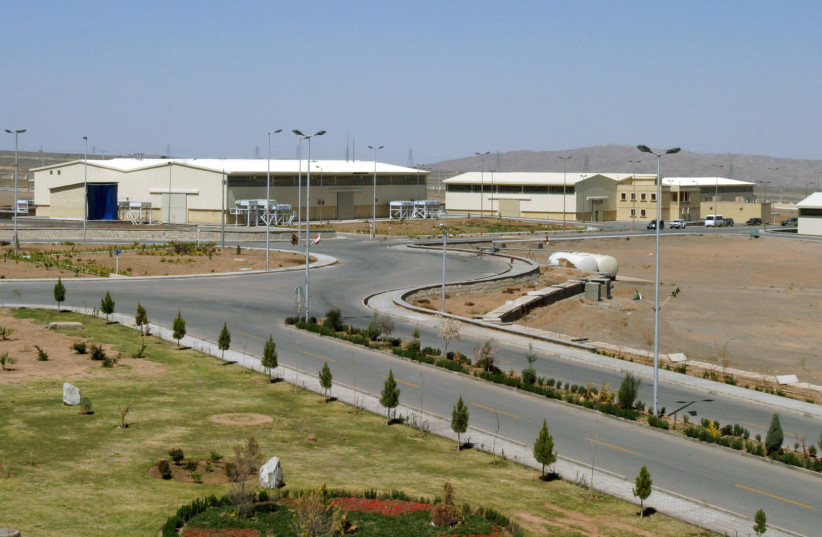With an eye to securing European Union support against Iran and calming tensions over the Palestinian conflict, Foreign Minister Eli Cohen is slated to visit Brussels on Tuesday to meet with EU foreign policy chief Josep Borrell.
“Israel and the European Union have many common interests in the Middle East, chief among them is stopping the Iranian nuclear program and the threat of terrorism,” Cohen said on Sunday.
Prime Minister Benjamin Netanyahu and Cohen have heavily lobbied Europe over the Iran issue. Tehran’s alliance with Moscow has opened a window for Israel to try and align Brussels’s policies with that of Jerusalem when it comes to the strategy for preventing the Islamic Republic from developing nuclear weapons.
Israel and the IAEA board
Israel in particular wants the International Atomic Energy Agency’s board to vote in June to ask the UN Security Council to reinstate crippling sanctions against Iran.
Cohen will ask the EU to take a hard line against Iranian uranium enrichment and to add Iran’s Islamic Revolutionary Guards to its list of terrorist organizations.

The Foreign Ministry stressed that Iran’s pursuit of nuclear weapons and its being the global sponsor of terrorism is top on the agenda.
At the government’s weekly meeting, Netanyahu said, “We will not allow Iran to tighten a ring of terrorism around us to strangle us.
“We are taking action on this matter around the clock, at all times, even now, and we will continue to take both offensive and defensive action against Iranian aggression and that of its terrorist proxies.”
In Brussels, Cohen also plans to tackle tensions between Israel and the EU over the Israeli-Palestinian conflict, particularly in his meeting with Borrell, who has taken a particularly harsh stance and made comments that have riled Netanyahu’s government.
In March, the Foreign Ministry barred Borrell from making a diplomatic visit to Israel to protest statements he made that appeared to equate Israeli terror victims with Palestinians killed by the IDF.
Israel and Brussels have also been at odds over the EU’s support for the construction of illegal Palestinian structures in Area C, particularly for Palestinian and Bedouin herding communities.
The EU sees this move as a humanitarian gesture on an issue of basic rights, the provision of housing. It has noted in particular the dearth of housing permits for Palestinians in Area C of the West Bank, which is under IDF civilian and military control.
EU support for Palestinian civic groups
Israel has also been concerned by EU support for Palestinian civic groups that it has deemed to be associated with terror activity.
“It is important for me to make it clear to our friends in Europe that Israel is not opposed to humanitarian aid coming from European countries and the union to the Palestinian Authority,” Cohen said.
Despite this, he added, Israel “will not allow European aid to indirectly reach terrorist organizations and incitement against Israel and Israelis.”
Last week, European Commission President Ursula von der Leyen angered the PA when she spoke of how Israel “made the desert bloom” when she issued a congratulatory statement on the country’s 75th birthday. The PA said her words were racist and it demanded an apology.
